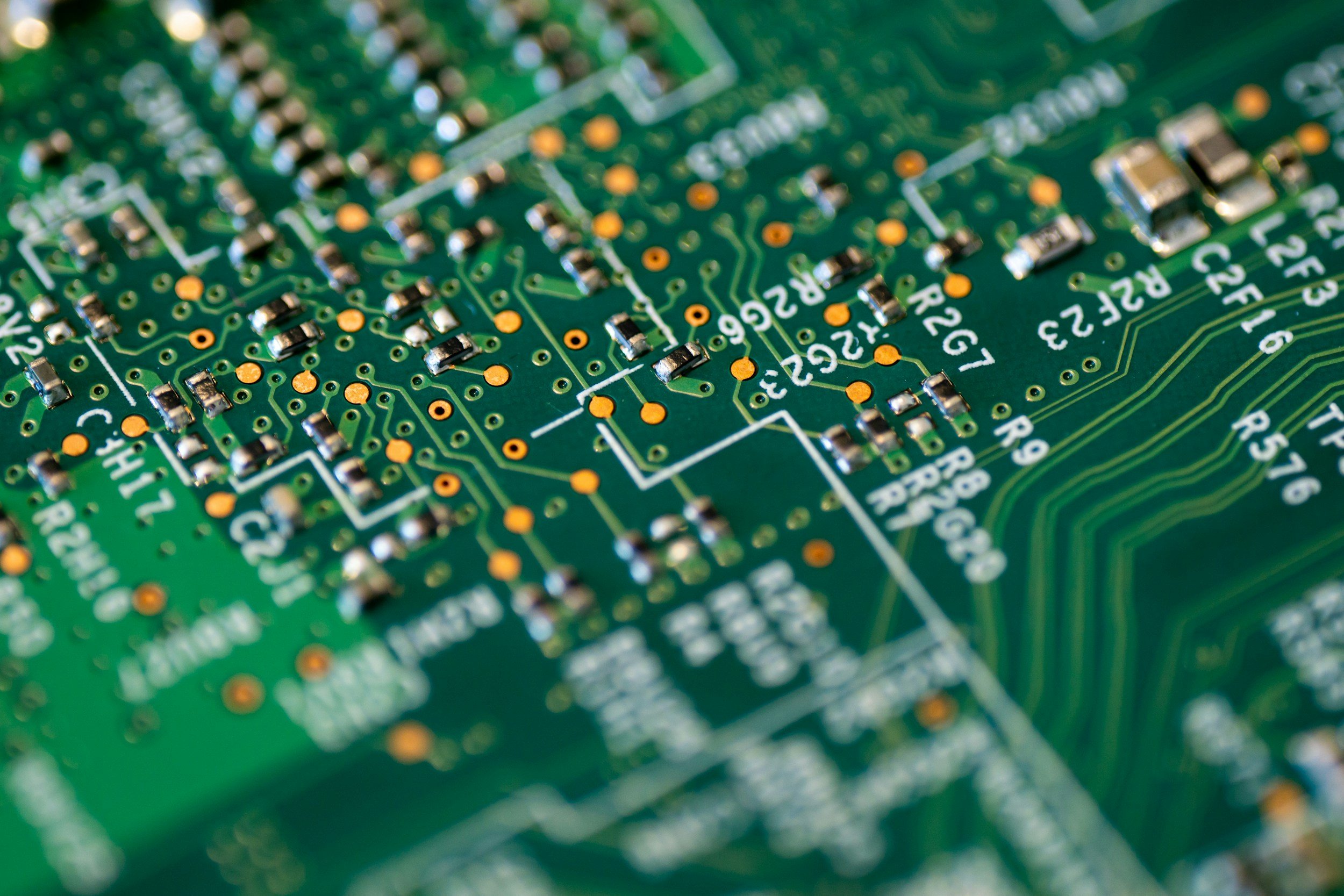The Symbiotic Evolution of Artificial Intelligence and Cryptocurrency
Image Credit: André François McKenzie | Splash
In recent years, the convergence of artificial intelligence and cryptocurrency has garnered significant attention, leading to transformative developments in the financial and technological landscapes.
[Read More: Trump’s $500 Billion AI Investment Fuels Growth in Blockchain and AI Cryptocurrencies]
The Genesis of AI in Cryptocurrency
The integration of AI into the cryptocurrency sphere is a relatively recent phenomenon, gaining traction only in the mid-2010s. Initially, cryptocurrencies like Bitcoin were conceived as decentralized digital currencies, designed to operate independently of centralized control.
As the cryptocurrency market expanded, the need for advanced tools to navigate its inherent volatility became apparent. AI emerged as a solution, offering capabilities in predictive analytics and automated trading strategies. Early applications focused on using machine learning algorithms to analyze market trends, enabling traders to make informed decisions in the face of rapid market fluctuations.
For instance, a study titled "Anticipating cryptocurrency prices using machine learning" by Laura Alessandretti, Abeer ElBahrawy, Luca Maria Aiello and Andrea Baronchelli in 2018 demonstrated that simple trading strategies assisted by machine learning algorithms could outperform standard benchmarks, highlighting AI's potential in cryptocurrency trading.
[Read More: AI Kicks Away Bitcoin? The Power Struggle for Energy Resources]
AI-Driven Innovations in the Crypto Space
The integration of artificial intelligence into the cryptocurrency sphere has significantly advanced in recent years, leading to notable innovations in trading and security.
AI-Powered Trading Bots
AI-powered trading bots have become increasingly prevalent in the cryptocurrency market. Platforms like Cryptohopper offer automated trading solutions that operate 24/7 in the cloud, analyzing vast datasets—including historical price data and market sentiment—to execute transactions at high speeds. These bots aim to capitalize on market inefficiencies by making real-time trading decisions.
Similarly, 3Commas has developed an AI Grid Bot that autonomously trades by buying low and selling high, utilizing a proven grid trading strategy combined with AI. This approach allows for continuous operation without human intervention, aiming to optimize trading outcomes.
Enhancing Blockchain Security with AI
Beyond trading, AI is being utilized to bolster blockchain security.
IBM's Food Trust leverages AI and blockchain to create a secure and transparent supply chain solution. By integrating AI, the system can rapidly identify and respond to potential food safety issues, thereby reducing fraud and enhancing consumer confidence. This approach ensures that any anomalies in the supply chain are quickly detected and addressed.
Blockverify is a blockchain platform focusing on anti-counterfeit measures, particularly in industries such as diamonds, pharmaceuticals, and luxury goods. By utilizing AI to analyze transaction data, Blockverify can identify patterns indicative of fraudulent activities, thereby bolstering the integrity of the blockchain network and ensuring the authenticity of products.
[Read More: AI Scam Agents Leverage OpenAI Voice API: A New Threat to Phone Scam Security]
Quantum Blockchain Technologies' AI Oracle
In January 2025, Quantum Blockchain Technologies (QBT), an AIM-listed company, announced a significant advancement in Bitcoin mining through its predictive AI model, known as the 'Method C AI Oracle'. According to QBT, this AI Oracle has been employed to optimize Bitcoin mining processes, reportedly achieving either a 30% reduction in energy consumption or a 30% increase in mining speed. The company has filed a patent application titled "Implementation of Binary Decision Trees" to protect this innovation.
Despite these promising claims, the technology has faced scrutiny regarding its practical implementation and the validity of its results. As of now, the company has yet to provide a live demonstration, and its patent is not yet visible in official databases, leading to ongoing debates within the industry.
[Read More: Nvidia vs. Supermicro: Deciding the Top AI Stock for Investors in 2024]
AI Integration Across Blockchain Platforms
Various blockchain platforms have been integrating artificial intelligence (AI) to enhance their functionalities and address specific challenges. Notable examples include:
Cardano's Initiatives in Credential Verification
In 2019, the Ministry of Education in Georgia partnered with IOHK, the company behind the Cardano blockchain, along with the Free University and the Business and Technology University of Tbilisi, to develop a blockchain-based credential verification system. This system enables educational institutions to store and authenticate grades, credentials, and certificates on the Cardano blockchain, allowing authorized parties to verify academic credentials efficiently.
Building upon this, in April 2021, IOHK announced a partnership with Ethiopia's Ministry of Education to implement a blockchain-based national student and teacher ID and attainment recording system. This initiative aims to digitally verify grades and monitor school performance, providing five million students with blockchain-verified digital qualifications.
IOTA's Role as a Trust Anchor for AI Models
IOTA has been involved in projects where its technology serves as a trust anchor for aggregated AI models, enhancing data security and integrity. For instance, the privacy-centered search engine Xayn utilizes IOTA as a trust anchor for its aggregated AI model, ensuring the integrity and security of the data processed.
[Read More: AI Scams Take Over 2024: Top 10 Threats and How to Stay Safe]
Evaluating the Impact of AI on Cryptocurrency
The integration of AI into cryptocurrency offers several advantages:
Enhanced Efficiency: AI algorithms can process and analyze large volumes of data more quickly than humans, leading to faster decision-making processes.
Improved Security: AI can detect fraudulent activities by identifying unusual patterns, thereby enhancing the security of transactions.
Automation: AI enables the automation of trading strategies, reducing the need for manual intervention and potentially increasing profitability.
However, there are also notable challenges:
Complexity: The implementation of AI systems can be complex, requiring specialized knowledge and resources.
Transparency: AI decision-making processes can lack transparency, making it difficult to understand how certain conclusions are reached.
Ethical Considerations: The use of AI in financial systems raises ethical questions, particularly concerning data privacy and the potential for biased decision-making.
[Read More: Do you know the ESG aspect of AI?]
Industry Views on AI and Cryptocurrency
Industry experts have expressed a range of opinions on the integration of artificial intelligence and cryptocurrency. Proponents highlight the potential for AI to enhance efficiency and security within blockchain networks, thereby driving innovation and expanding the capabilities of digital currencies. For instance, a report by S&P Global, published in October 2024, suggests that even modest applications of AI in crypto could offer significant power and network optimization opportunities, potentially leading to a decentralized internet supported by crypto.
Conversely, skeptics caution against an over-reliance on AI, pointing to risks associated with algorithmic errors and unforeseen consequences in automated systems. They emphasize the need for rigorous testing and transparent methodologies to ensure the safe integration of AI into cryptocurrency platforms. A study published in the Journal of Business Research in March 2022 underscores the importance of addressing ethical concerns and ensuring robust governance frameworks when integrating AI with blockchain technologies.
These diverse perspectives highlight the importance of a balanced approach, recognizing both the transformative potential and the inherent risks of combining AI with cryptocurrency.
The Road Ahead for AI and Cryptocurrency
Looking forward, the relationship between AI and cryptocurrency is poised for further evolution. Emerging trends suggest a deeper integration of AI into blockchain platforms, with potential applications in areas such as decentralized finance (DeFi), where AI could be used to manage lending protocols and assess credit risk. Additionally, the development of AI-specific cryptocurrencies, designed to power AI systems and facilitate the sharing of AI-focused resources, is an area of growing interest. As these technologies continue to mature, it will be crucial to address the associated challenges proactively, ensuring that the benefits of AI and cryptocurrency integration are realized while mitigating potential risks.
[Read More: Exponential Baby! Understanding AI's Role in Technology's Rapid Evolution]
Source: arXiv, Cryptohopper, 3commas.io, Hackernoon, Bernard Marr, Quantum Blockchain Technologies, Financial Times, TokenPost, AACRAO, Crypto News Flash, S&P Global, PubMed Central















